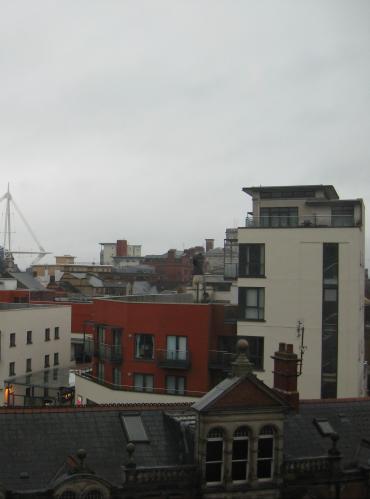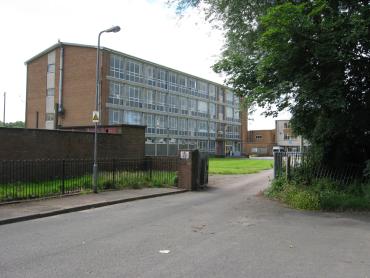|
Controlling Governments is great fun and something
which everyone should get involved in. The basic method involves
voting in elections. It is cheaper than voting for people in
reality TV shows, and the series tend to last for much longer.
The contestants tend to fall out in various interesting ways,
have stupid ideas and do things which grab the headlines. If
you think that Government is irrelevant then you should go out
and vote in a way which will produce an interesting result while
if you think that Government is important then it is a general
duty to vote in elections for whichever party you want to win
(be it the Government or the Official Monster Raving Looney Party).
If enough people vote for them then they win the seat. It is
always annoying when someone fails to win because 50 people didn't
think that their opinions mattered.
Your opinion will tend to matter more and
have a greater effect if you vote for one of the major parties
(Conservative, Labour and Lib-Dem in England, with Plaid Cymru
added in Wales and the Scottish National Party in Scotland. Northern
Ireland has its own set of parties, of which the main ones are
Sinn Fein (who don't take their seats) and the Democratic Unionist
Party). If you live in a constituency held by the party which
is in Government and vote for that party then you are expressing
support for your MP and their response to Government policy.
If you vote for a different party then you are saying that you
don't like Government policy and going for whichever party seems
to represent the best way out. The rough positions of each party
are listed here:
- Labour: Spend money to get out of problems
- Tory: Don't spend money to get out of problems
- Lib-Dem: The Government should have acted
sooner
- Plaid Cymru: Wales will solve its problems
by leaving the UK
- Scots Nats: Scotland will solve its problems
by leaving the UK
- Democratic Unionists: Northern Ireland will
be fine in the UK
- Sinn Fein: Northern Ireland would be better
off in EIRE
- UK Independence: The EU causes all our problems
- British National: Immigrants cause all our
problems
- Green: Global warming causes all our problems
- Monster Raving Looney: Moo.
Once you have voted for your MP, all the votes
will be taken in and counted up. The person with the most votes
for your area, or seat, wins and pootles off to Parliament, where
they either sit on the left (if they are a Government MP) or
on the right (if they aren't)
If your MP does not belong to the governing
party then they will have very little power and have difficulty
being heard. If they belong to the governing party then they
will have virtually no power at all and be unable to express
any grievances which they may have with the Government.
Each week the Government is brought to account
in Prime Minister's Questions. Members of the House of Commons
ask the Prime Minister Questions, alternating from side to side
of the House. As a rule, questions from the party of Government
will be slightly fawning and questions not from the party of
Government will be irritable. The Prime Minister reads out a
list of stock answers which occasionally refer in passing to
the topic which he has been asked about; on rare occasions the
Prime Minister may even address the issue to the satisfaction
of the person asking the question then and there.
Although the Government is theoretically held
to account in the Commons, the top brass of the Government all
sit there and so can also ensure that the Commons does what it's
told. The rule on Prime Ministers is that they must be able to
command a majority in the Commons and so if it is possible to
actually defeat a Prime Minister on hare-brained ideas then it
may be time for an election. All the opposition parties can do
is vote against schemes as a general gesture of disapproval -
in the final years of a Government this may be enough to kill
a scheme. Currently just over 30 Labour MPs need to rebel and
join all MPs on the opposition benches to stop the Government
from passing a measure through the House of Commons.
The Government is therefore more frequently
held to account in the House of Lords. Until 1999 controversial
measures were frequently dusted through with a wave of a tired
lordly hand. Reform of the House of Lords means that the people
there now have had to pay good money for the privilege, and so
are very keen on taking advantage of their titles. This means
that, curiously, although Labour now has more Lords than anyone
else, they cannot actually guarantee that they will get anything
through. Instead things get bounced back to the Commons with
monotonous regularity, where they are examined, changed back
to their original form and despatched back to the Lords in the
hope that some more favourable Lords will have turned up to vote
the second time round.
The Government also has the benefit that it
can do various things (like declare wars) without the consent
of Parliament. However, Parliament controls the purse strings
and the Budget has to be voted on each year to decide how much
money can be spent on hospitals, schools, new runways, wars,
bankers, etc. The most efficient way of holding the Government
to account, therefore, would be to stage a revolt against the
Budget; if it were to fail to pass the Commons it would:
- a) be unprecedented
- b) require a vote of confidence in the Government.
The Government could then be allowed to pass
the vote of confidence with a narrow majority. Votes of confidence
are very exciting and allow Parliament to take the success of
the Government as a whole into account, but are not necessarily
popular with the electorate. The Opposition get presented as
pushy and vicious. Losing the Budget (and therefore being unable
to charge taxes if an emergency replacement cannot be rustled
up quickly enough) would be a sufficient rap over the knuckles
(it has not happened since the Lords found that bringing down
Budgets was jolly fun in the early 20th Century. This led to
them being rapped over the knuckles and stripped of their status).
Should the Government lose the vote of no confidence the Prime
Minister would be obliged to resign and call an election; inconvenient
if none of the parties are ready for one yet. It has not been
explained since 1832 (the last Great Reform of the Commons) as
to what would happen if the governing party were to win the ensuing
election. Such an event would therefore allow all the constitutional
lawyers to do very well out of discussing what should happen
next.
This of course brings us back to where we
started - voting in an election for MPs to go to the House of
Commons.
- It is also possible to try to hold the Government
to account by bringing a case against them in the law courts.
This can be very beneficial - at least, it can be if you are
one of the lucky lawyers involved in the case. If the Government
loses, it will appeal. If it keeps losing, it will simply change
the law so that it isn't losing any more. If it finds that it
is still losing, then it simply tells the press that it is not
in the Public Interest for them to mention that their glorious
Government has done something wrong. The reason for this is explained
in Yes Minister:
-
- Jim Hacker:
Well, it's not in my interest for it to get out. And I represent
the public, so it's not in the public interest.
-
- If the worst comes to the worst, the Government
will simply have to unveil a glorious new project which is in
the public interest on the day of the judgement, or hope that
it coincides with a terrorist attack. The problem with the glorious
new project is that it may be remembered by the public as much
as the smear would have been, and then the Government will have
to do something about it.
People have been known to object about their
treatment on the basis of something called the "European
Convention on Human Rights". This was neatly sidestepped
by successive Tory and Labour Governments by not actually passing
a law which incorporated it into the British legal system, thus
ensuring that despite Winston Churchill's great enthusiasm for
Europe to have a legally binding document on human rights the
United Kingdom was not actually obliged to offer any of them.
Even Winston Churchill spent his premiership not passing the
Convention into law. The courts were asked to use it but they
said that Parliament was very keen for it to not be used and
so they would leave it to one side, rather than "incorporate
the Convention by the back door". Tony Blair, when he was
still young and fresh and didn't understand how Government worked,
incorporated most of said Convention as the Human Rights Act
but realised a few years later that this might have been a bit
stupid. He went on record as saying that he might get rid of
it, but never remembered to do so - making do instead with removing
rights not explicitly included in the Act. This means that people
could object on the basis of human rights violations; however,
the rights are now read very carefully and only apply to the
guilty party. We all know this, because it is regularly repeated
by very reliable right-wing newspapers. Whichever side the rights
are normally offered to, however, what is clear is that there
are not nearly enough of them to protect us from future Tory
Governments. We all know this, because it is regularly repeated
by very reliable left-wing newspapers.
There are three other methods of controlling
the Government. One is to be a big business employing lots of
people and with very effective feelers able to find suitable
Government ministers. You can then persuade them to talk total
tosh on your behalf, getting you lots of money and a Prime Minister
who does what you tell him like a hypnotised poodle.
The second is to appeal to the European Court
of Justice because the Government has broken some bit of EU legislation.
This has been known to have a very slight effect on certain occasions.
Whatever the result of your case, it will be held up by some
as a display of the brilliance of the EU and by others as a good
reason to leave the EU immediately. The same people will be on
the same side of the argument regardless of the result.
The third is to fill the cellars under the
Palace of Westminster with gunpowder and blow the place up, causing
considerable damage to the imposing architecture and ruining
the fossil collection. This has been tried, but it didn't work.
The gunpowder was damp and the plotters were executed. However,
the introduction of human rights to the UK in 1998 means that
you are now spared the risk of execution. There is also the benefit
that those responsible for guarding the Palace of Westminster
are mostly engaged in questionning photographers, removing protestors
and arresting MPs, which ensures that they will be too busy to
notice someone delivering three tons of gunpowder. There are,
however, a couple of issues - namely that the high-up members
of Government tend not to be there much and that, nowadays, the
result would probably be a panic, draconian anti-terrorist legislation
and a series of by-elections. By contrast, when Airey Neave was
blown up in the House of Commons car park no legislation was
passed at all.
So, that's controlling Governments sorted
out. Next time - why railway companies used to be more fun than
politics.
The author disclaims all responsibility
for any inferences made, crimes committed or indiscretions perpetrated
as a result of any person, being or object reading, studying
or considering any idea contained within this or similar articles. |







